

Qualia Feast by Paper Cranium
June 11th, 2008 8:12 AM
In choosing a quale to document, I really wanted to find a fundamental sort of experience. A song, a location, a relationship all seemed so complex to me, compounds of dozens of simpler sensations. Of course, each time I tried to reduce these experiences into their component parts, I balked at the implications: “But I can't describe that!” I suffer from crippling perfectionism at times, and the idea of taking on an exercise at which one must necessarily fail didn't sit well with my pride. Of course, this is the point of the entire task. In the end, I decided to attempt a description of the sensation of weight, through a combination of poetry, music, visual art, and prose.
Poetry
As I'm pretty comfortable with poetry as a descriptive medium, I began with that.
Weight
The compulsion to lower
is instantaneous, unthought. Pressure.
The skin of soles distending, widening parallel
with earth, narrowing between earth and
weight.
Effort. Exertion. Mitochondria beg
oxygen, claiming hardship. Cells dial
the brain, just below consciousness: lower.
Lower. In the name of efficiency, lower!
Bow down! We bow. The body remains perverse,
even prone. Ribs insist on jutting, lungs expand,
the heart contracts, relaxes; we feel the weight
of it. Work. Effort. Exertion. Rejecting the submissive
rest of the liquid, body asserts the imperative of form.
In absence of external pressures, it still insists on adherence,
the weight of atoms pulling outsides in. “Thus far
and no farther!” it demands. Sadratu'l-Muntaha.
I am thinking the unthought.
I am effing the ineffable.
What is it? It is heavy, heavy, heavy,
this weight.
Music
Music seems better able to communicate a nonverbal sensation, so I devised a short playlist of songs that gave me an impression of weight, each in its own way, but generally semi-independent of any lyrics. I tried to keep the songs different from each other, but they are limited by the pathetic scope of my music collection. My apologies: I spent my formative years being parented by a hippie and a classical pianist, and it shows.
Playlist:
Sound of Silence – Simon and Garfunkel
Can't Kill You – Terra Naomi
March Slav – Pyotor Illych Tchaikovsky
We Will Rock You – Queen
Beautiful People – Rusted Root
God is Sufficient Unto Me – Tom Price
Hey Jude – The Beatles
Piano Trio in A Minor, (first and third movements) – Maurice Ravel
Suzanne – Leonard Cohen
Art
I suck at visual art, but there's really no way I could feel good about this attempt to describe weight without using visual representations. These are all from Wikipedia Commons, in case anybody's about to have a stroke over copyright stuff.




 Prose
Prose
I've heard people say that one cannot think without language, but the nature of a quale is that one cannot really speak of it. I would argue that, just as a quale cannot be described, a quale cannot be thought. It is a direct experience such that no consciousness of consciousness is necessary. Any creature with sensory organs experiences qualia. However, one can and does frequently think about qualia. Almost as soon as a sensation has been experienced, social and symbolic associations come to mind, such that they may seem to be almost a part of the quale itself. If we examine the language and its associations, we can work backwards in determining what the quale is not, thus bringing us a step closer to what it is. Yes, I'm a symbolic interactionist. Deal with it.
Etymology:
- Weigh:
O.E. wegan "find the weight of, have weight, lift, carry," from P.Gmc. *weganan (cf. O.S. wegan, O.Fris. wega, Du. wegen "to weigh," O.N. vega, O.H.G. wegan "to move, carry, weigh," Ger. wiegen "to weigh"), from PIE *wegh- "to move" (cf. Skt. vahati "carries, conveys," vahitram "vessel, ship;" Avestan vazaiti "he leads, draws;" Gk. okhos
"carriage;" L. vehere "to carry, convey;" O.C.S. vesti "to carry, convey;" Lith. vezu "to carry, convey;" O.Ir. fecht "campaign, journey"). The original sense was of motion, which led to that of lifting, then to that of "measure the weight of." The older sense of "lift, carry" survives in the nautical phrase weigh anchor. Fig. sense of "to consider, ponder" (in ref. to words, etc.) is recorded from 1340.
Weight:
- O.E. gewiht, from P.Gmc. *(ga)wekhtiz, *(ga)wekhtjan (cf. O.N. vætt, O.Fris. wicht, M.Du. gewicht, Ger. Gewicht), from *weg- The verb meaning "to load with weight" is attested from 1747; sense in statistics is recorded from 1901. To lose weight "get thinner" is recorded from 1961. Weight Watcher as a trademark name dates from 1960. To pull one's weight (1921) is from rowing. Weighty "important, serious, grave" is from 1489.
- (This is all yanked from the Online Etymology Dictionary. I'd use the other dictionary with the initials OED if I could, but I don't have access. O Oxford English Dictionary, mother of all dictionaries of lesser stuff made! Why must you be so freaking expensive? Why?)
Random Reflections:
Why do we feel weight as a sensation of something pushing down on us from above, when it's really pulling down on us from below? I've never understood why our wiring is so messed up in this respect.
Weight is, of course, related to gravity and mass. But standing with a pile of hardcover books in my arms, I don't actually feel anything I would relate to 9.8 meters per second per second. I feel tired. I feel there should be a table nearby. I feel like my elbow might crack in half. I feel heavy. But not once have I thought about acceleration.
 Mass is a weighty matter! Consider it with the appropriate gravity. Okay, I'll stop punning now. But it's true.
Mass is a weighty matter! Consider it with the appropriate gravity. Okay, I'll stop punning now. But it's true.
Sometimes, I look at the moon. It's so huge, and it's got so much mass, but it's just floating there in the sky. Now, you can tell me all you like that it's actually falling in orbit around the earth. I'll believe you, but it won't matter a bit to my subjective self, which is still astounded that the moon can simply hang there in mid air. Or mid no-air, which is even more bizarre.

On the moon, gravity is .165 that of earth. Things fall at 1.6 meters per second per second. I'd love to see what an elephant would do on the moon. That would be so cool.

- I wonder if astronauts experience weight as a different sort of quale after they've spent significant amounts of time without gravity. Does the body change its perceptions on that basic kind of level, based on experience, or is it only the mind that adapts itself so well to new knowledge? I know that, as my joints slowly degrade (thank you, defective ligaments!), I'm much more consciously aware of weight than I was as a child, probably because I'm more likely to associate it with pain or an inability to counteract it (by running up the stairs, or whatever I wish I could do). But does this consciousness have anything to do with the quale itself? Weight registers at such an animal, maybe even vegetable level of awareness. Birth is the only physical/environmental change I can imagine that would be drastic enough to seriously alter the experience of weight on a perceptual level.
But enough of my philosophizing. This quale has been brought to you by the letters P and U, and this task has been my favorite yet. Seriously, folks. Take your brain for a walk and try it out, it's fun!
6 vote(s)
Terms
(none yet)2 comment(s)
I was reading along, thinking, "eh, it's a decent completion" and then I got to your musings about astronauts. Which, for some reason, were what actually inspired me to think about weight differently, and that was *awesome*.
Thank you.







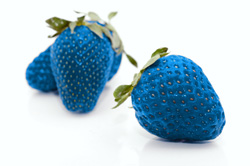

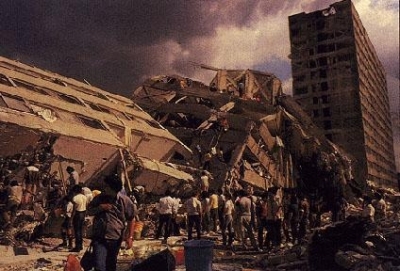


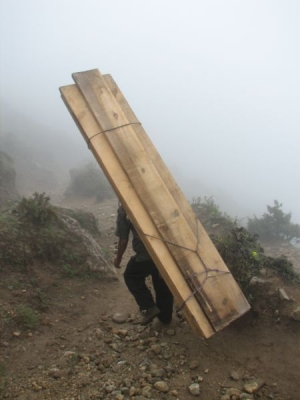

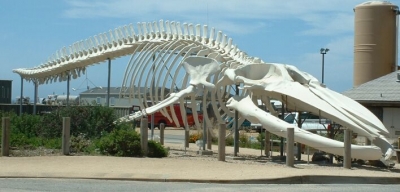
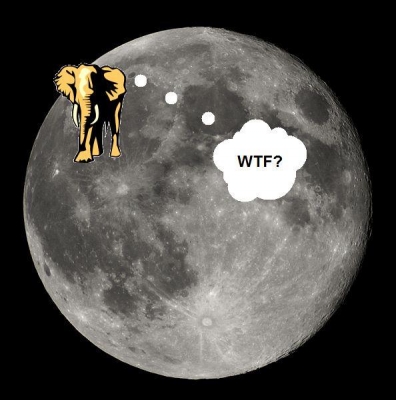







I specially liked the part of walking back from what the quale is not and the image of the cells dialing the brain upon mitochondria begging in the name of efficiency.